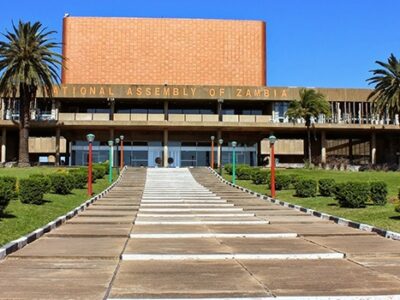John Maynard Keynes’s famous quote, “In the long run, we are all dead,” serves as a poignant reminder of the urgency in addressing critical issues without delay.
Among these pressing concerns is the rampant spread of fake news—a phenomenon that can have devastating effects on individuals and communities.
Fake news is not just a nuisance; it has the potential to spread misinformation, fuel conspiracy theories and erode trust in crucial institutions.
Its implications can be severe, influencing elections, inciting violence and endangering public health.
The rapid spread of false information, especially with the rise of social media platforms, necessitates immediate and effective measures.
One effective approach to combating fake news is through media literacy and high-quality journalism.
Read more: Between sustained pressure and govt push back over Zambia’s democratic space, by Hannet Mwimbe
News organizations play a vital role in this fight by calling out fake news and disinformation without legitimizing it.
This can be achieved through the efforts of in-house professionals and reputable fact-checkers who ensure that accurate information prevails.
Furthermore, news outlets should focus on delivering high-quality journalism that fosters trust and attracts a larger audience.
By prioritizing credible and impactful reporting, media organizations can counteract the spread of false information.
Gregory Gondwe, an Assistant Professor of Journalism Studies and a 2022-2023 Harvard Visiting Scholar, sheds light on the dynamics of media literacy and its role in addressing fake news.
In his study, “Audience Perception of Fake News in Zambia: Examining the Relationship Between Media Literacy and News Believability,” Gondwe notes that stories with a direct impact on specific communities are often perceived as more significant.
This can lead to the consumption of fake news from sources that might not be categorized as reliable.
Gondwe underscored that combating fake news requires a certain level of media literacy.
However, in many countries, including Zambia, media literacy is often a privilege of the educated elite.
This creates a challenge, as a significant portion of the population may lack the skills to critically analyze news content.
In Zambia, where literacy levels are relatively low, the ability to critique and verify news sources is limited, highlighting the need for broader media literacy initiatives.
Addressing the spread of fake news demands a multi-faceted approach. Promoting media literacy is crucial, as it equips individuals with the skills needed to discern credible information from misinformation.
At the same time, supporting and advocating for high-quality journalism helps ensure that accurate and reliable news reaches the public.
In conclusion, combating fake news and promoting a culture of truth and accuracy is a complex challenge that requires concerted efforts from media organizations, educators, and policymakers.
By enhancing media literacy and fostering high-quality journalism, societies can better protect themselves from the damaging effects of misinformation and uphold the integrity of public discourse.
WARNING! All rights reserved. This material, and other digital content on this website, may not be reproduced, published, broadcast, rewritten or redistributed in whole or in part without prior express permission from ZAMBIA MONITOR.













Comments